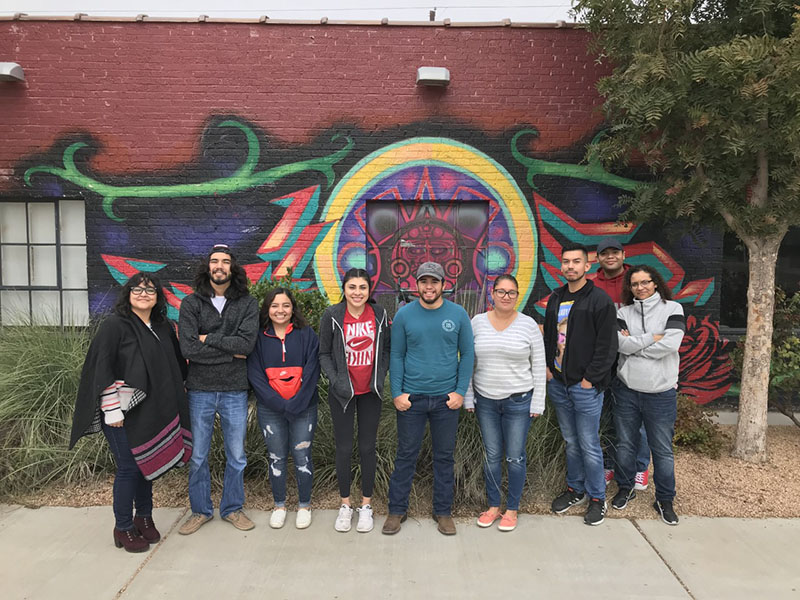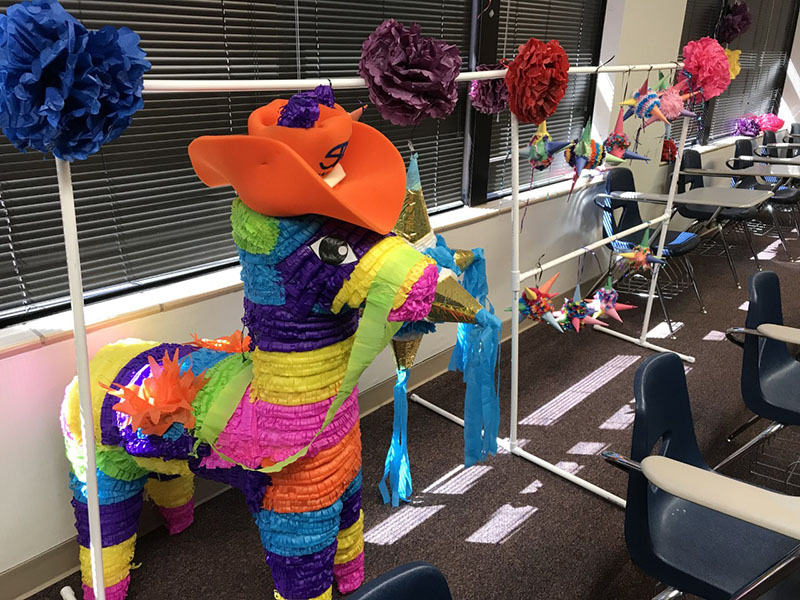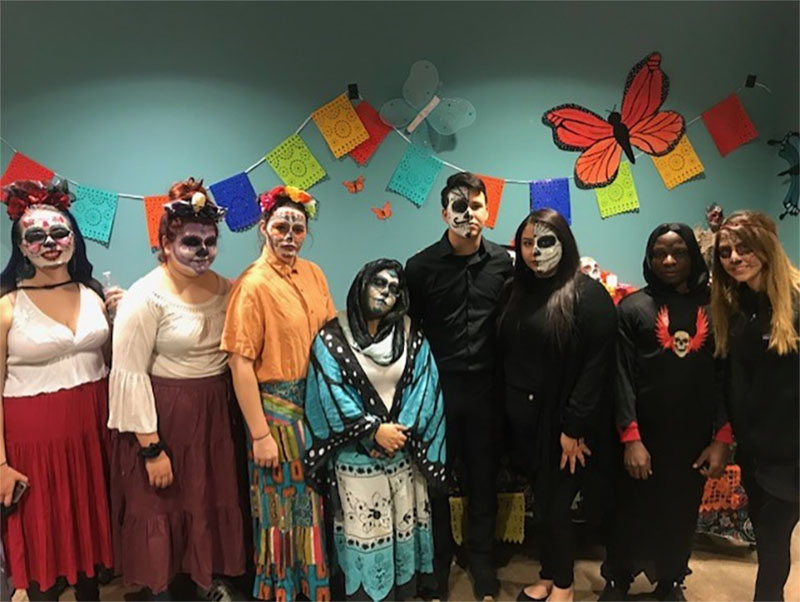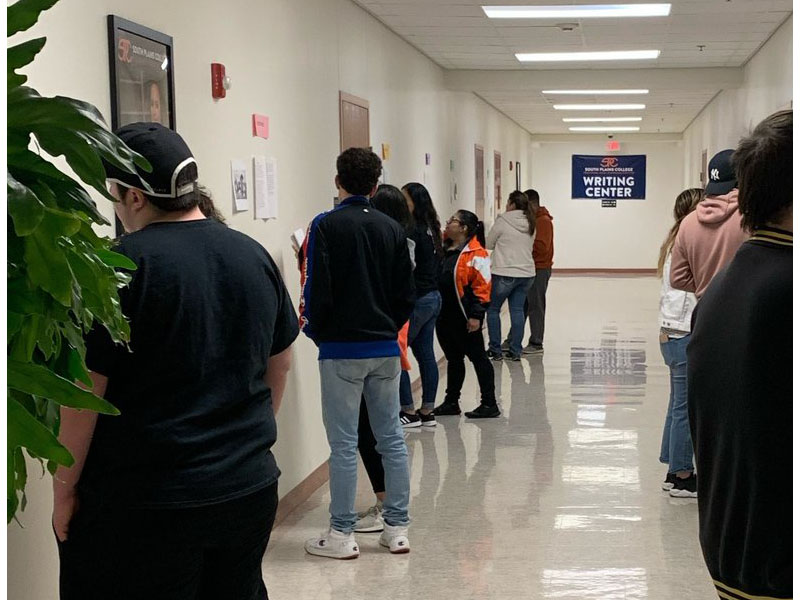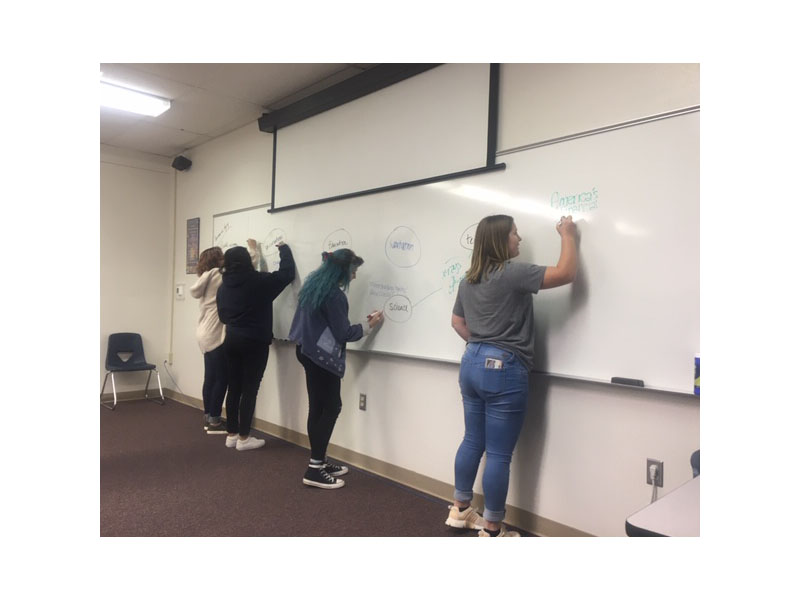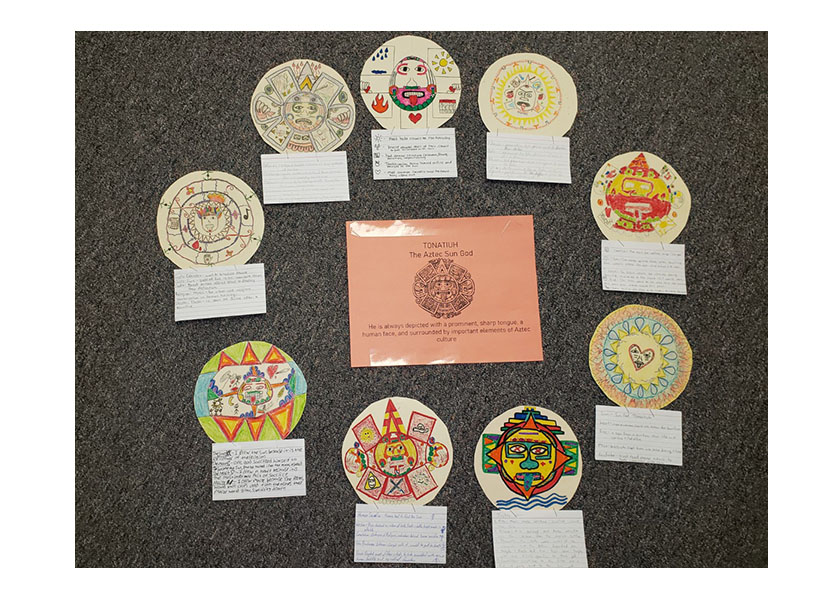Courses Taught
The Behavioral Sciences Department offers many courses in the disciplines of psychology, sociology, social work, anthropology, and humanities. Many of these courses can count toward areas of the common core curriculum. The area of the common core curriculum fulfilled by each course is noted in the course descriptions below.

Learn More
Anthropology: The study of all things human (Homo Sapiens) past and present
ANTH 2346: General Anthropology: This course is a study of human beings, their antecedents and related primates, and their cultural behavior and institutions. It introduces the major subfields: physical and cultural anthropology, archeology,linguistics and ethnology.
ANTH 2351: Cultural Anthropology: The study of human cultures. Topics may include social organization, institutions, interactions between human groups, and ethics in the discipline. This course satisfies a 080 Social and Behavioral Sciences CoreCurriculum requirement.
Humanities: The study of how people process and document the human experience.
HUMA 1301: Introduction to Humanities: This stand-alone course is an interdisciplinary survey of cultures focusing on the philosophical and aesthetic factors in human values with an emphasis on the historical development of the individual and society and the need to create. This course satisfies a 040 Language, Philosophy and Culture Core Curriculum requirement.
HUMA 1305: Introduction to Mexican-American Studies: This interdisciplinary survey examines the different cultural, artistic, economic, historical, political, and social aspects of the Mexican American/Chicano/a communities. It also covers issues such as dispossession, immigration, transnationalism, and other topics that have shaped the Mexican American experience. This course satisfies a040 Language, Philosophy and Culture Core Curriculum requirement.
HUMA 2319: American Minority Studies: This interdisciplinary survey examines the diverse cultural, artistic, economic, historical, political, and social aspects of American minority communities. Topics may include race/ethnicity, gender, socioeconomic class, sexual orientation, national origin, age, disability, and religion. This course satisfies a 040 Language, Philosophy and Culture Core Curriculum requirement.
HUMA 2323: World Cultures: This course is a general study of diverse world cultures. Topics include cultural practices, social structures, religions, arts, and languages. This course satisfies a 040 Language, Philosophy and Culture Core Curriculum requirement.
Psychology: the scientific study of behavior and mental processes.
PSYC 2301: General Psychology: General Psychology is a survey of the major psychological topics, theories and approaches to the scientific study of behavior and mental processes. This course satisfies a080 Social and Behavioral Sciences CoreCurriculum requirement.
PSYC 2306: Human Sexuality: This course will provide an overview of the broad field of human sexuality. Topics will be covered from various perspectives – biological, sociological, anthropological, etc., but will focus primarily on the psychological perspective. The goal is for each student to learn factual, scientifically-based information that will provoke thought and contribute to his/her own decision-making on sexual issues outside of the classroom. This course satisfies a080 Social and Behavioral SciencesCore Curriculum requirement.
PSYC 2308: Child Psychology: TThis course will address psychological development from conception through childhood with references to physical, cognitive, social and personality changes. Students will examine the interplay of biological factors, human interaction, social structures and cultural forces in development. This course satisfies a080 Social and Behavioral Sciences CoreCurriculum requirement.
PSYC 2314: Lifespan Growth & Development: Life-Span Growth and Development is a study of social, emotional, cognitive and physical factors and influences of a developing human from conception to death. This course satisfies a 080 Social and Behavioral SciencesCore Curriculum requirement.
PSYC 2316: Psychology of Personality: Study of various approaches to determinants, development, and assessment of personality.
PSYC 2317: Statistical Methods in Psychology: This course covers descriptive and inferential statistics used in psychological research and assessment. It includes measurement, characteristics of distributions; measures of central tendency and variability; transformed scores; correlation and regression; probability theory; and hypotheses testing and inference.
PSYC 2319: Social Psychology: Studyof individual behavior within the social environment. Topics may include socio-psychological processes, attitude formation and change, interpersonal relations, group processes, self, social cognition, and research methods.
PSYC 2320: Abnormal Psychology: This course provides an introduction to the psychological, biological, and socio-cultural factors involved in the development, diagnosis, and treatment of psychological disorders. It includes a review of the historical understanding of abnormal behavior and the development of modern diagnostic systems. It includes discussion of psychological research and practice as it relates to mental health and psychological functioning, as well as legal and ethical issues.
PSYC 2331: Biological Psychology: An introduction to the biological bases of behavior. Topics include evolution, genetics, research methods in behavioral neuroscience, motivation and emotion, sensation and perception, learning and memory, lifespan development, cognition, psychological disorders, and other complex behaviors.
Social Work: The professional activity of helping individuals, families, groups or communities toenhance or restore their capacity for social functioning, or creating societalconditions favorable to that goal.
SOCW 2361: Introduction to Social Work: An overview of the history and development of social work as a profession. The course is designed to foster a philosophical, historical, and critical understanding of the social work profession, including social work values, ethics, and areas of practice utilized under a Generalist Intervention Model. This course is required for Social Work majors.
SOCW 2362: Social Welfare: Legislation, Programs, & Services: This course offers a historical and contemporary examination of legislation and resulting programs, policies, and services in the context of the social welfare system in the United States. Special attention is given to the political, economic, environmental, and social conditions that prompted the development of legislation to meet the needs of vulnerable populations. Societal responses to legislation are also considered. This course is required for Social Work majors.
Sociology: The scientific study of human society, patterns of social relationships, and social interaction.
SOCI 1301: Introduction to Sociology: The scientific study of human societyincluding ways in which groups, socialinstitutions, and individuals affect each other. Causes of socialstability and social change are explored through the application of various theoretical perspectives, key concepts, and related research methods of sociology. Analysis of socialissues in their institutional context may include topics such as socialstratification, gender, race/ethnicity, and deviance. This course satisfies a 080 Social and Behavioral SciencesCore Curriculum requirement.
SOCI 1306: Social Problems: Application of sociological principles to the major problems of contemporary society such as inequality, crime and violence, substance abuse, deviance, and family problems.
SOCI 2301: Marriage and the Family: Sociological and theoretical analysis of the structures and functions of the family, the varied cultural patterns of the American family, and the relationships that exist among the individuals within the family, as well as the relationships that exist between the family and other institutions in society.
SOCI 2306: Human Sexuality: This course will provide an overview of the broad field of human sexuality. Topics will be covered from various perspectives -biological, psychological, sociological, and anthropological, The goal is for each student to learn factual, scientifically-based information that will provoke thought and contribute to the student’s own decision-making on sexual issues outside of the classroom. This course satisfies a 080 Social and Behavioral SciencesCore Curriculum requirement.
SOCI 2336: Criminology: The course surveys various theories of crime, with an emphasis on understanding the social causes of criminal behavior. The techniques for measuring crime as a social phenomenon and the characteristics of criminals are examined. This course addresses crime types (such as consensual or white-collar crimes), the criminal justice system, and other social responses to crime.This course satisfies a 080 Social and Behavioral SciencesCore Curriculum requirement.
SOCI 2340: Drug Use & Abuse: This course is a study of the physiological, sociological, and psychological factors contributing to the use and abuse of drugs in today’s society. This course satisfies a 080 Social and Behavioral Sciences Core Curriculum requirement.
SOCI 2319: Minority Studies: This course studies minority-majority group relations, addressing their historical, cultural, social, economic, and institutional development in the United States. Both sociological and social psychological levels of analysis will be employed to discuss issues including experiences of minority groups within the context of their cultural heritage and tradition, as well as that of the dominant culture. Core concepts to be examined include (but are not limited to) social inequality, dominance/subordination, prejudice, and discrimination. Particular minority groups discussed may include those based on poverty, race/ethnicity, gender, sexual orientation, age, disability, or religion.

